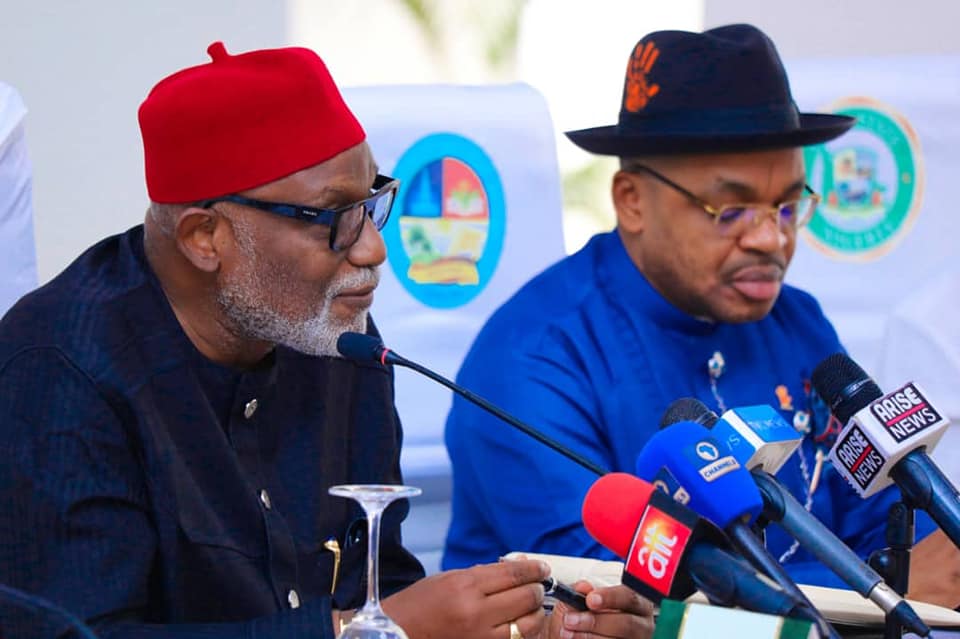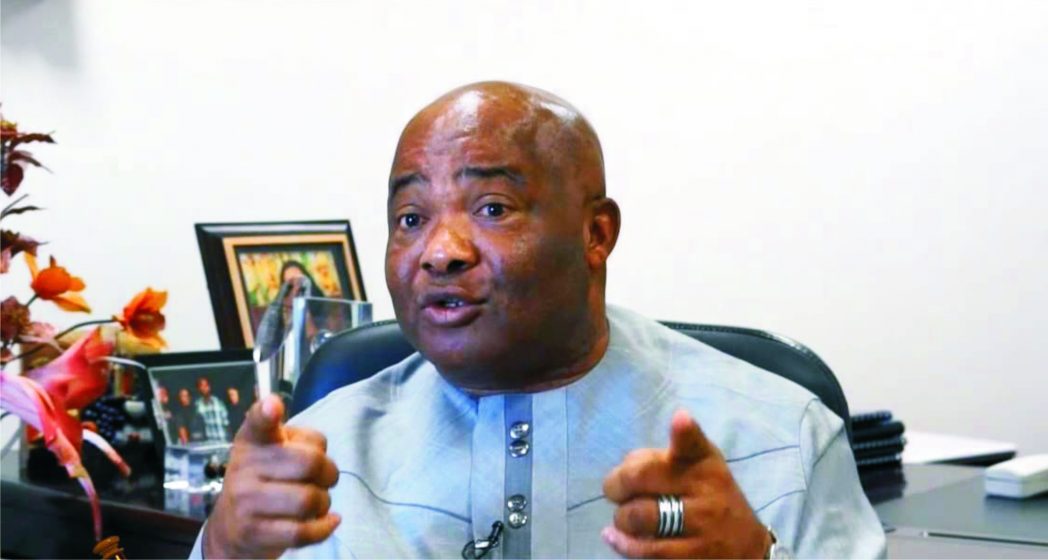Business
Nigeria Owes N35.5trn, As Local Debt Stands At N21trn

The nation’s public debt stock stood at N35.465trillion as at June 30, Director-General of the Debt Management Office (DMO), Ms. Patience Oniha, has disclosed.
Total public debt is composed of the domestic and external debt of the Federal Government, the 36 state governments and the Federal Capital Territory (FCT).
Nigeria’s total public debt stock was N33.107trillion or $87.239billion, as at March 31, 2021.
This indicated a N2.358trillion rise in the debt stock from the end of the first quarter of the year to the end of the second quarter.
A breakdown of the public debt figure under review indicated that that external debt was N13.711trillion, representing 38.66 per cent.
On the other hand, domestic debt was N21.754trillion, representing 61.34 per cent of the total stock.
The Federal Government accounted for N11.828trillion of the external debt and N17.632trillion of the domestic debt.
States and the FCT’s external debt stood at N1.883trillion, with a domestic debt stock of N4.122trillion.
The breakdown of the external debt showed that the bulk of the debt is owed to multilaterals (World Bank Group and the African Development Bank Group), which accounted for 54.88 per cent.
The next highest category is the commercial debt (Eurobonds and Diaspora bonds) which accounted for 31.88 per cent; while bilateral (China, France, Japan, India and Germany) stood at 12.70 per cent.
Promissory Notes represent 0.54 per cent.
Oniha explained that the nation had several benefits from going to source funds which included showcasing Nigeria in a positive light in the international financial markets where large pools of capital are available.
In addition, she said, “The sovereign Eurobonds serve as a benchmark on the back of which several local banks have issued Eurobonds. Amongst them are Zenith Bank, Access Bank, UBA, FBN, Ecobank Nigeria and Fidelity Bank. This window opened by the sovereign enabled these Nigerian Banks raise Tier-2 Capital to meet regulatory requirements and enhanced their capacity to lend to, and, support local borrowers.
“Issuing Eurobonds has been a potent tool for building up Nigeria’s External Reserves. A healthy level of External Reserves supports the Naira Exchange Rate and Nigeria’s sovereign rating.
“Raising funds externally through Eurobonds to finance budget deficits reduces the level of sovereign borrowing in the domestic markets. The benefits of this are many: mitigates the risk of crowding out the private sector (more funds available at moderate rates for other borrowers in the domestic economy).
“The Eurobonds are also listed in Nigeria’s two securities exchanges: The Nigerian Exchange Limited and FMDQ Securities Exchange Limited. This increases the size of these exchanges and diversity of instruments listed.
“The Eurobonds are actually issued as part of approved Government Borrowing Plans, usually in the FGN’s annual budgets, for financing capital projects thereby reducing the infrastructure gap.”
The D-G explained that the issues of rising debt, high debt service to revenue ratio and utilization of borrowed funds were germane.
She said that members of the public should not lose sight of the facts which necessitated borrowing which included, “Huge Infrastructure Deficit , Recession (twice in the last six years), Consecutive Budget Deficits, Low Revenue Base, compounded by dependence on one source – crude oil which prices crashed and at a point, at the peak of the Covid-19 pandemic had no buyers.”
Oniha stressed that Nigerians must challenge themselves and support the Federal Government on the need to raise revenue.
She noted that the 5 per cent tax as a percentage of the Gross Domestic product (GDP) was too poor for Nigeria and that concerted efforts must be made to increase the nation’s revenue.
The D-G disclosed that work has already started on this, adding the Federal Government debt to the Central Bank of Nigeria which was at about N10trillion at the beginning of the process.
She said, “We are working towards recognizing it, getting the proper approvals to include it in the public debt stock. Where we are is to get the necessary approvals to convert it into a tenured debt.”
On the foreign exchange implications for debt service, especially the fall in the value of the Naira, in recent times, the DMO boss said, “we have initiated actions towards managing that risk.”
Business
Nigeria’s Gold, Other Solid Minerals Being Stolen – NEC

The National Economic Council has expanded the mandate of its Ad-hoc Committee on Crude Oil Theft Prevention and Control to cover illegal mining.
This is just as the council raised the alarm that the nation’s solid minerals, including gold, are being mined and stolen.
Imo State Governor, Hope Uzodimma, who chairs the committee, disclosed this while briefing State House correspondents after the 153rd NEC meeting chaired by Vice President Kashim Shettima at the Presidential Villa, Abuja, yesterday.
Uzodimma said the expanded mandate is part of the government’s efforts to curb resource theft and increase revenue from Nigeria’s solid minerals sector.
“The National Economic Council Ad-hoc Committee on Crude Oil Theft Prevention and Control, which I chair, presented an interim report today to the Council.
“NEC received our report with satisfaction and expanded our Terms of Reference to now also take interest in solid minerals, because our solid minerals are being mined and stolen and not adding to national revenue,” said Uzodma.
He noted that the expanded role would enable the committee to coordinate with the Ministry of Solid Minerals Development and other federal and subnational institutions to combat widespread illegal gold mining and other forms of mineral smuggling that have deprived the country of much-needed foreign exchange.
“Going forward, our committee, working with other government agencies, will look at how to ensure that the revenue of the country arising from solid minerals like gold and other forms of solid minerals are not allowed to be stolen,” the governor added.
NEC’s Ad-hoc Committee on Crude Oil Theft Prevention and Control was first established under former President Muhammadu Buhari in August 2022.
It was reconstituted under President Bola Tinubu in December 2023 with Uzodinma as chairman.
The committee was initially mandated to address the challenge of crude oil theft and pipeline vandalism.
Its creation followed rising oil theft that had crippled national production and forced international oil companies to shut down key pipelines.
At the time, oil production had crashed to around 700,000–800,000 barrels per day, far below Nigeria’s OPEC quota, costing the government billions of dollars in lost export revenue.
Uzodimma explained that through what he called a “collaborative approach” involving regulators, operators, and the security forces, the committee had helped raise daily crude oil production to over 1.7 million barrels per day in the past 22 months.
The governor stated, “Before May 29, 2023, when President Bola Tinubu was sworn in, our crude oil production was around 700,000 to 800,000 barrels a day.
“Working with stakeholders, the regulators, operators in the industry, and the Navy, we were able to involve all the governors of crude oil-producing states and raise different security organisations.
“You would agree with me that as I speak, daily production is now in excess of 1.7 million barrels a day, and cases of pipeline vandalism and vandalisation of oil assets have also been on the decline.”
The council, he said, was satisfied with the progress and decided to deploy the same model of intergovernmental coordination, private-sector partnership, and multi-agency surveillance to the mining sector, plagued by resource theft.
“We are determined to ensure that crude oil production and gas are properly preserved for the benefit of our citizens.
“Now, with this new directive, we will also protect our gold and solid mineral assets,” Uzodinma added.
Nigeria’s illegal mining economy, particularly in gold, lithium, and other high-value minerals, has grown into a multibillion-naira shadow industry.
According to data from the Nigeria Extractive Industries Transparency Initiative, the country loses an estimated $9bn annually to illegal mineral extraction and smuggling.
The Federal Government has linked several unlicensed mining operations to armed groups in the North-West and North-Central regions, where gold has become a source of illicit financing for bandits.
A 2023 NEITI audit also showed that over 80 per cent of mining activities in Nigeria were conducted informally, without licenses or environmental oversight.
In September 2024, the Ministry of Solid Minerals Development revoked over 900 dormant licences and announced plans for a national gold reserve policy. But enforcement remains difficult, with weak surveillance, limited manpower, and overlapping regulatory mandates.
According to Uzodimma, the expanded mandate aims to integrate the fight against illegal mining into the broader national resource protection framework previously used in the oil sector.
“We have done well,” he claimed, adding, “Among other things, we recommended that NNPC, working with security agencies and their consultants, should strengthen security in all the creeks and extend coverage to offshore regions. That will help in curtailing and supervising illegal entries and exits of vessels into our export terminals. This same spirit will now guide our solid minerals sector.”
The committee is expected to submit its first progress report on the expanded mandate at the next NEC meeting in November.
Business
NIMASA Marks 2025 Customer Week, Pledges Service Excellence

Business
SEME Customs Foils Smuggling Attempt Of Expired Flour, Seizes N2bn Contraband

-

 Featured14 hours ago
Featured14 hours agoFubara Pledges Cleaner Gateway To PH City …Visits New Dumpsite At Igwuruta
-

 News18 hours ago
News18 hours agoWAEC Conducts Trial Computer-based Essay Test Ahead Of 2026 Exams
-

 News14 hours ago
News14 hours agoFubara Vows Full Support For Independent, Effective Judiciary
-

 Niger Delta17 hours ago
Niger Delta17 hours agoRSG Tasks NIS On Expatriate Attachee Policy
-

 Politics14 hours ago
Politics14 hours agoTinubu Swears In New INEC Chairman
-
News16 hours ago
Germany Promises Continued Support For Nigeria’s Anti-terrorism Fight
-

 News16 hours ago
News16 hours agoEFCC Arrests 792 Suspects In Investment, Crypto Fraud Crackdown
-

 News16 hours ago
News16 hours agoNew INEC Chair Pledges Free, Fair, Credible Polls

